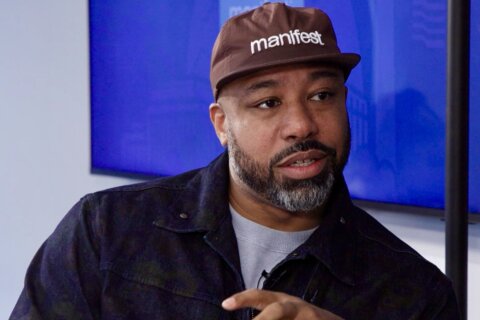As school systems throughout the D.C. region prepare to increase the number of students taking in-person classes, realities of an ongoing pandemic suggest hopes of “things getting back to normal in classrooms” is unrealistic — at least for now.
Virginia Gov. Ralph Northam and Maryland Gov. Larry Hogan have each instructed school systems to offer in-person learning, in addition to distance-learning options, by next month while the country begins the process of vaccinating those most at risk from the spread of coronavirus.
Teachers in both states are being prioritized in receiving COVID-19 vaccines.
Over many months, many parents have expressed frustration that students learning virtually at home are being deprived of the benefits of being in a classroom with teachers and their peers.
Now, as school boards move toward a phased return of in-person learning, some parents are learning that while socially distanced students will be in their school buildings — generally two days per week — the experience won’t necessarily be the same as when they were last in classrooms in March 2020.
Several school systems, including in Fairfax County, have been hiring in-school monitors, who will be present in classrooms, while students learn virtually from a teacher, who is working from home — often as part of an Americans With Disabilities Act accommodation.
In most cases, the classroom monitor position requires a high school diploma or GED, and limits the support provided to students to technological and logistical challenges.
Even before COVID, school systems often had difficulty enlisting qualified substitute teachers.
Virginia Department of Education Superintendent James Lane said the state is being flexible.
“A long-term substitute teacher, prior to COVID, is only allowed to teach 90 days in a row, before they must have a full-time licensed teacher. We’ve provided that flexibility so a long-term substitute teacher can remain for the entire year.”
Lane added, “School divisions are finding people that are able to come in and support our students in-person, while many teachers that are high-risk have to stay home. Obviously, the best situation for students is a full-time licensed teacher in the classroom, and as much as we can support recruitment, we’ll continue to do that, as well.”
- Sign up for WTOP alerts
- Latest coronavirus test results in DC, Maryland and Virginia
- Coronavirus vaccine FAQ: What you need to know
- Maryland couple struggles with finicky COVD-19 vaccine process
Looking for more information? D.C., Maryland and Virginia are each releasing more data every day. Visit their official sites here: Virginia | Maryland | D.C.
In a Friday news conference with Northam, Lane said return-to-school procedures and summer education offerings won’t be one-size-fits all.
“It will be nuanced, because every school division’s situation is different, with the way they’ve navigated the pandemic,” Lane said. “That’s taught us a lot about what’s possible, in terms of keeping teachers and students and families safe.”
The differences will be granular, even as individual school systems provide return-to-school guidance to teachers, according to Loudoun County schools spokesman Wayde Byard.
“Teachers have been told not to have intentional contact that is closer than six feet,” Byard told WTOP in an email. That includes sitting with a student or students in a small group setting or stopping by a student’s desk for a tutorial.
“That being said, we recognize that teachers may have incidental contact that is closer than 6 feet from a student,” he added, such as walking by desks in the classroom or passing paper to a student.
As has often become the case during the COVID-19 pandemic, guidance on the best ways to keep students safe has been fluid.
The head of the U.S. Centers for Disease Control and Prevention said the CDC will release guidance on school re-openings this week, which could introduce new protocols that would be shared with state agencies and, eventually, local school systems.
For extending in-person learning into the summer, Lane, Virginia’s education superintendent, said the state is forming a working group to look at what will need to be done to ensure students are caught-up by fall.
“That will address student learning loss,” he said, and “how to think about flexible calendars.”








